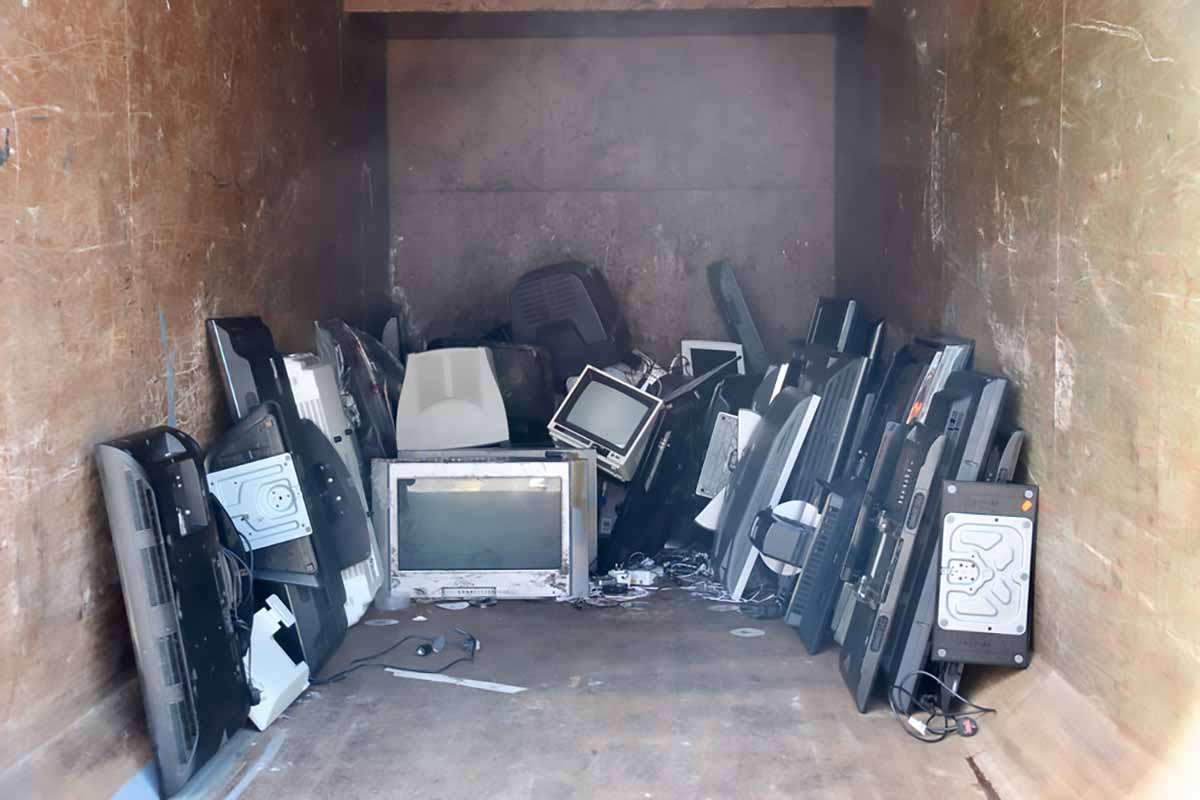
North Carolina’s pounds collected per-capita fell to 2.12 pounds in 2020-21. | Serge Cornu/Shutterstock
COVID-19 impacts and ongoing trends in the materials stream made a major impact on the North Carolina state e-scrap program last year.
Data released on the program results in the 2020-21 fiscal year showed a drop of both weight of collected electronics and the number of local governments operating electronics recycling programs.
The N.C. Department of Environmental Quality Division of Waste Management’s annual report found declines in collection through both local government collection channels and retailers.
Electronics recycling laws in the state cover TVs, computer equipment, printers, scanners, cell phones, stereos, video players and other low-grade electronic devices. Local governments collected 10,624 tons of those electronics in 2020-21, a 9.5% decrease from 2019-20’s 11,735 tons.
Overall collection, which includes retailers, dropped from 12,815 tons in 2019-20 to 11,239 tons in 2020-21. That changed the state’s pounds collected per capita from 2.44 pounds to 2.12 pounds, according to the report.
“Although this decrease follows a general trend of declining electronics recycling tonnage since FY 2015-16, another contributing factor could be impacts from the COVID-19 pandemic, which resulted in many local governments suspending or limiting operational hours of special collection services during late FY 2019-20 and into early FY 2020-21,” the report said.
Access did decline in 2020-21, when 170 local governments operated an electronics recycling program, down from 175 the previous year. The number of drop-off sites fell from 434 to 421.
The collection of computer equipment, specifically, decreased 6.8%, and other electronics decreased 2% from the previous year, the report said. The collection of TVs decreased 11.6%, from 7,743 to 6,848 tons.
It noted that while the proportion of TVs remained steady between 70% and 74% of total electronics recovered between 2015 and 2019, in the past two years that proportion declined to 64%.
“It is likely that FY 2015-16 marked the peak in recycling of cathode-ray tube (CRT) televisions in North Carolina,” the report said. “Compared to more modern flat-panel display (FPD) televisions, CRT televisions are substantially heavier and more difficult to handle for public recycling programs.”
The state’s disposal ban on computer equipment and TVs went into effect July 1, 2011. Manufacturers must register with the state and pay a registration fee, the amount depending on several factors. TV producers pay an initial fee of $2,500 plus an annual fee of $2,500, and each manufacturer has to recycle its market share of TVs.
Computer equipment manufacturers must pay an initial fee of $10,000 to $15,000, then an annual fee of $2,500 to $15,000, depending on the level of recycling plan chosen to provide consumers with free and reasonably convenient recycling.
The fees go into an Electronics Management Fund, which then awards money to local governments to help pay for recycling programs. In 2020-21, $500,000 was provided to local governments from the fund.
More stories about EPR/stewardship
- Wisconsin E-Cycle report reflects increasing access
- Policy round-up: Solar stewardship, state changes
- Right to repair in WA and battery EPR in Nebraska


